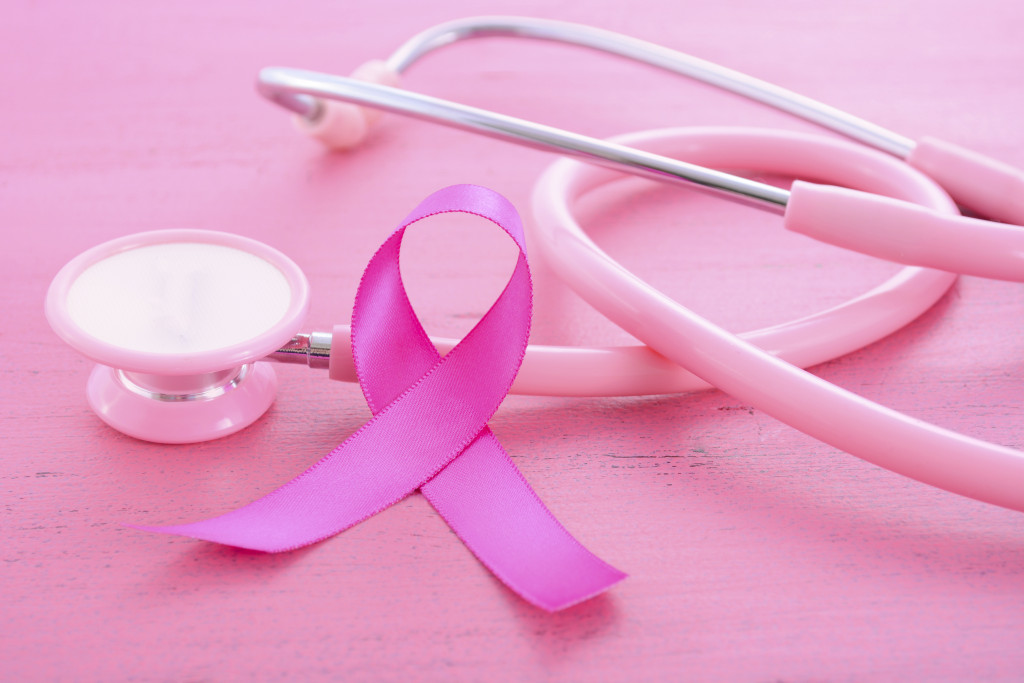- Living a healthy lifestyle reduces the risk of cancer development.
- Encouraging an open dialogue about cancer diagnosis, treatment and prevention methods.
- Keeping track of medical records and diagnoses for everyone in the family.
- Getting regular screenings and annual exams for early detection of tumors.
- Taking advantage of clinical trials to access new treatments and therapies.
Living with a family history of cancer can be difficult, but there are steps you can take to make it easier. This article outlines five tips that can help manage your family’s history of cancer — from living a healthy lifestyle to taking advantage of clinical trials. Read on to learn more about how you can better manage your family’s medical history and health outcomes.
1. Living a Healthy Lifestyle
The best way to prevent the onset of cancer is through living a healthy lifestyle. Eating nutritious meals, exercising regularly, and avoiding smoking can all reduce your risk of developing cancer. Limiting alcohol consumption and getting adequate sleep will also help prevent many types of cancer. Everyone in the family must follow a healthy lifestyle to help reduce their risk of developing cancer.
2. Encouraging Open Dialogue About Cancer
Having an open dialogue about cancer is the first step in managing your family’s history of the disease. Encourage conversations about diagnosis, treatment, and prevention methods so everyone can know what steps they need to take. This will also allow family members to support each other during difficult times and unite as a unit.
3. Keeping Track of Medical Records and Diagnoses

Medical records are essential when it comes to managing your family’s history of cancer. Make sure you keep track of all medical documents, test results, and doctor’s notes, so everyone has a comprehensive record. This will also help you keep up to date on any new developments in screening and treatment options that become available over time.
4. Get Regular Screenings and Annual Exams
In addition to maintaining your family’s medical records, everyone must attend screenings and annual exams. These regular check-ups will help detect any signs or symptoms of cancer earlier and ensure prompt treatment if needed. It’s essential to get tested if anyone in the family has a history of cancer, as they may be more likely to develop the disease again in the future.
Here are some screenings you should get for different types of cancers:
Breast Cancer
It’s recommended that women aged 40 and over get regular mammograms, yearly breast exams by their doctor, and monthly breast self-exams. Additionally, men need to be aware of the signs and symptoms of breast cancer, as male breast cancer is rare but can still occur.
Lung Cancer
People who smoke cigarettes or have a family history of lung cancer should get regular chest X-rays, or CT scans every year for early detection of tumors. If you are at high risk for lung cancer, your doctor may recommend a low-dose CT scan.
Colorectal Cancer
Starting at age 45, men and women should get screened for colorectal cancer every ten years. People with a family history of the disease may need to begin screening earlier or get tested more often. Depending on your health history, your doctor may recommend a fecal occult blood test, a colonoscopy, or other tests.
Prostate Cancer

Men aged 50 and over should talk to their doctor about getting an annual prostate exam. This simple test can detect any signs of cancer early on, so treatment can begin immediately if necessary. African-American men and those with a family history of the disease should start getting tested at age 45 instead.
Skin Cancer
Everyone should get a skin exam every year or two to look for any suspicious moles or other skin appearance changes indicative of skin cancer. If you have fair skin, freckles, or a history of sunburns, you may need to get screened more often than others.
Cervical Cancer
Women should get regular pap smears beginning at age 21 and continue to do so at least every three years until age 65. A test for the human papillomavirus (HPV), which is linked to cervical cancer, should also be done as part of your screening. Depending on your results, your doctor may recommend screenings more often if needed.
5. Take Advantage of Clinical Trials
Clinical trials are an invaluable resource when it comes to managing your family’s history of cancer. These trials can provide access to new treatments and therapies that may not be available outside a research setting. Furthermore, you can also participate in healthy volunteer paid clinical trials, which can help contribute to research that may eventually lead to breakthrough cancer treatments. This will also help you gain access to the latest advances in cancer research and treatment.
In Summary
While accepting the reality of having a family history of cancer is hard, you don’t have to succumb to its effects. By following these five tips — from living a healthy lifestyle to taking advantage of clinical trials — you can better manage your family’s medical history, reduce their risk of developing cancer, and make positive changes to their health outcomes. With some planning and preparation, you can ensure that everyone in your family stays healthy and safe for years to come.


